
My friend Dan Oudshoorn over at On Journeying With Those In Exile <http://poserorprophet.wordpress.com/> has asked me and some other folks to share a guest post on his blog. I appreciated the offer but I often have a hard time self-starting on anything longer than a FB comment (that’s why there are only 6 or 7 posts on this blog in 3 years; and really, FB wisecracks and sarcastic blog comments should not suggest one be given the responsibility and honor of a whole post on my favorite and a highly esteemed blog). However, I asked Dan to pose me some questions an I would see if anything came to me, this is what he sent me:
(1) What is meaning?
(2) What is the significance of meaning?
(3) What is the relationship of meaning to ethics?
(4) What is the relationship of meaning to events?
(5) What is the relationship of meaning to actions?
(6) What is the relationship of meaning to desire?
(7) What is the relationship of meaning to language?
(8) What is the relationship of meaning to being?
(9) What is the relationship of one person's sense of meaning to other senses of meaning?
(10) What is the relationship of meaning to meaninglessness?
Of course, this freaked me out, and is a good example of what happens when you shoot your mouth off a lot on other folks blogs with pseudo-intellectual pretentiousness and didactic pontificating (along with large forkful’s of quasi-B.S.). Still I am accepting DanO’s challenge and I am working diligently on my response. Bear in mind, I have never actually posed myself as anything other than a mediocre Hillbilly-folk singer; and since all my friends and family are on FB and read this blog, they can keep in check any tendency I have towards self-aggrandizement and exaggeration--especially my wife!
Now while I am working on my response I asked DanO to answer a question for me as well, and he accepted. I have great respect for DanO’s writing, insights, scholarship, intellectual heft and experience living and working in places of homelessness and suffering (see his blog for bio). So, since DanO and others have been writing a lot lately on the experience of “godforsakeness” and the larger questions of God’s presence (or absence, indifference, of disappearance) in the terrible places of suffering, despair and death in this world my question was: “What is your experience and understanding of the Jewish concept of TziTzum?” “TzimTzum” you may have noticed is the name of this blog. Below is DanO’s excellent reply:
Dear Daniel,
In response to the relatively simple and playful questions that I asked you, you responded with one that is more serious and difficult to answer. You asked about my “experience and understanding of the Jewish concept of Tzim Tzum.” I will reverse the order of your question to speak of my “understanding” of the concept and then will turn to the question of my “experience” thereof (although, it should be noted at the outset that any “understanding” I have is questionable based upon the limitations of my experience).
I am only familiar with the concept of Tzim Tzum through the writings of a Christian theologian, Jurgen Moltmann, who employs the idea extensively in his book, God In Creation. It has been some time since I read that book, but I remember that Moltmann did engage the Jewish sources in some detail. Thus, the notion of Tzim Tzum, according to (my memory of) Moltmann, is one that seeks to explain how there can be that-which-is-not-God when God is all-encompassing. The explanation is that God withdraws into God's self in order to create a space that is free for the development of that-which-is-not-God. Perhaps a womb would be a good analogy. A space exists, within a given woman, for the development of that-which-is-not-the-woman. That which develops in that space within the woman is not the woman, but it still develops within the woman. So is creation unto God, from this perspective.
This then, leads Moltmann to two or three points that are important to his theology. First, it leads to his development of the notion of panentheism – not that all things are God(s), but that all things are in God. Secondly, Tzim Tzum then develops a different perspective on the experience of exile – didn't some Rabbis relate Tzim Tzum to exile (I don't remember)? Basically, the point is that God has been withdrawing into an exile of God's own, from the moment of creation onwards, and so God's people, who experience exile, can also meet with the exiled God there. Hence, one finds God with the godforsaken in their experience of godforsakenness. Third, and moving into explicitly Christian content, Moltmann uses this concept to support his perspective on kenosis and the sufferings of God, in that God's choice to limit God's self, and God's choice to do so on behalf of creation, is revealed to be rooted in the character of God from the origins of the universe. Jesus, then, according to Moltmann, is simply revealing what God has done and been doing from the beginning of time/space.
So much for my understanding of things. I don't know how much of what I know is true of the Jewish sources or has been added on by Moltmann – other than the obvious addition of Jesus to the mix. The harder question is how I have experienced Tzim Tzum (how does one “experience” a “concept”?).
Half a dozen years ago, when I first really began to explore notions of godforsakenness, exile and suffering not only conceptually but by moving into spaces that appeared to be marked by those things, I found encouragement in this way of thinking. It helped motivate that course of action. Being inspired by a narrative that spoke of a God who journeyed into places of godforsakenness – a God who went into exile, who suffered alongside of creation, a Spirit who groaned, a Messiah who was crucified – I also sought out places that were identified by those things – godforsakenness, suffering, groaning, crucifixion – and thought that I could both help to be a Christ-like presence there while simultaneously finding the presence of Christ there. And, for many years, I found that and, perhaps in some small ways, I was that.
Now I don't know... everything related to meaning, theology, even language, seems to be a game we create and play, in many ways, to get around or away from how events actually feel. Godforsakenness just feels like abandonment. Suffering just hurts. Groaning comes because we have no other words. Crucifixion sucks.
To borrow from Cormac McCarthy's novels – violence simply is. Trauma simply is. Now I don't know any sort of over-coding or narrative that makes sense of those things. Not that I want to discourage others from finding ways to deal with those things by means of meaningful over-codings, narratives, or other ways of making sense. I just have trouble buying into any of it all myself. I want violence to not be. I want trauma to not be. Full stop.
So, Tzim Tzum now seems like a beautiful idea but one that does not connect to the world as it is experienced, not necessarily by me (because I am not as much the focus of my own thinking any more) but by others. If I prioritize the experiences of others whom I have known then Tzim Tzum, or a God in exile, a groaning Spirit and a crucified Christ, doesn't make much of a difference in a meaningful, experiential way.
And that is the place where I find myself. Perhaps still in the womb of God... but who knows if that makes any tangible sort of difference... maybe it makes a difference after we die... maybe... but for now, so what?”




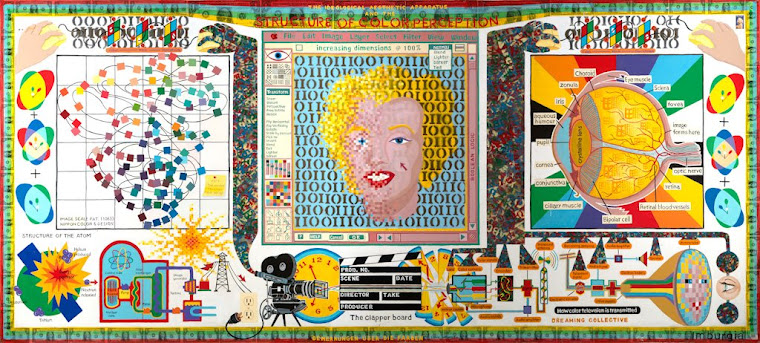
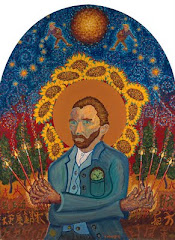


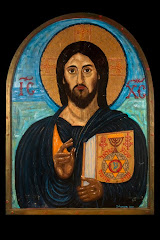
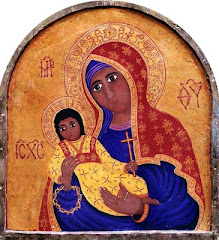

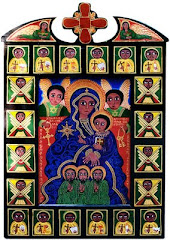

Thanks so much DanO, as always I will be thinking about what you wrote for awhile. Let me offer this to you and any others that stumble onto this conversation. You may have noticed that I have no explanation of what TzimTzum is on my blog (I wanted those that were really interested to engage it for themselves...to date no one has except you Dan, obliged). I came across TzimTzum many years ago via Gershom Scholem (close friend etc,. of W. Benjamin) during a research project (their letters to each other are well worth a read). Of course everyone from Saint Augustine to Newt Gingrich have offered differing explanations on the relationship between God’s presence/absence, Human freedom, suffering and death. I remember Herbert McCabe (channeling Thomas so well he wouldn’t recognize his own self!) writing somewhere something like ‘humans do not become more free in God’s absence, but only find real freedom in relation to God’s presence. It is only God in us that can make us truly human, truly ourselves, thus truly free.‘ And yeah I love that, and it makes some sense, but it’s not like that answers all the questions now does it?
ReplyDeleteSo let me just add something from Hans Jonas’ excellent essay “The Concept of God After Auschwitz: A Jewish Perspective.” I can’t find it on line but I have the book so let me paraphrase. Jonas is asking us to imagine a God that has contracted totally from the world, not just provisionally, but by totally forgoing God’s own inviolateness, God, the eternal ground, allowed the world to be. To this self-denial all creation owes its existence and with it has received all there is to receive from beyond. ‘Having given himself whole to the becoming world, God has no more to give: it is man’s (sic) now to give to him!’ Then he argues, we must speak of “a suffering God”; second, we must speak of “a becoming God,” a God which emerges in time rather than possessing a completed being which remains strictly identical, a God which is affected and changed by the world; third, we must speak of “a caring God,” a God which has left something for other agents to do and thereby make divine caring dependent on these agents; and fourth, we must speak of a God which is not omnipotent: power which meets no resistance is no power at all; there must be a division of power. Jonas questions the popular option that God has all the power but has chosen not to use it. As problematic as all that is for most Christian/Jewish theology, Jonas goes a step further; he suggests that God put God’s own being at risk in the world! That is, that in God’s involvement with the world, with creation, with humanity (with crucifixion?) God’s very being is at stake, that God’s love for and communion with us is so profound that if we perish, God may perish with us!
... Yes of course there are all kinds of problems with this and Jonas is more than anticipating Jean-Luc Marion’s theology of “God Without Being.” Still, when most of your family is killed by goose-stepping evangelists for family-values, national exceptionalism, moral purity, and freedom from decadent European values (and sporting belt-buckles with the motto “Gott Mit Uns,” God Is With Us, or ‘Emmanuel’ in Hebrew!, who says Nazi’s can’t do irony) we aught to cut the guy some slack to think outside the box, so to speak. All this it to say, I agree with you DanO, I don’t think there is any final answer to these questions, there is just living and dying with the agony and tensions among them. I don’t accept or reject Jonas’s argument, I just integrate it into my daily struggle for and between life and faith, joy and sorrow, doubt, despair, and the occasional glimpses of peace, that rightly passes for what others call Christian faith.
ReplyDeleteSo let me finish by paraphrasing a bit form Scholem, Terrence Mallick, Star Trek IV, and Leonard Cohen. Perhaps this contraction of God making space for creation doesn’t occur only once but is like a birthing. From God’s womb (where you now abide DanO) comes a thread of light into the chaotic void. The light is a pulse-ing, an umbilical cord, and the life/light flows between Creator and Creation. But the probing light, like a furious lover, overwhelms the darkness, and rather than a gentle birthing into wholeness, the dark-chaos is shattered into an almost infinite number of pitch-fire shards. A terrible scream went out from creation as it was torn to pieces and it has not been silenced since. We can sometimes still hear that terrible scream inside of us and others, for there is something in all of us that bears witness to it. Every heart is a blistered shard of that broken body of the world, and still pulses with both light and darkness. Since this eternal beginning an infinity of Angels moves between the Creator and the shattered body of Creation. These angels are gathering and mending together every fractured shard of being into a perfect wholeness. We sometimes feel a glimpse of this happening when our own broken heart finds a way to fit together with someone else’s broken heart. But it is not enough for us to patiently wait for God to finish Creation, we are all given the power and freedom to join the re-pair of the world. And so God waits, and suffers, as we break each others hearts over and over, almost faster than the Angels can heal them.
Then again, maybe this is all just bullshit. A pitiful gathering around the black fires of our hopeless despair as we tell each other stories to make the silence bearable and explain away the unbearable longing in our hearts.
Either way, God bless you brother and obliged y’all.
Yet God my King is from of old,
ReplyDeleteworking salvation in the midst of the earth.
You divided the sea by your might;
you broke the heads of the sea monsters[d] on the waters.
You crushed the heads of Leviathan;
you gave him as food for the creatures of the wilderness.
You split open springs and brooks;
you dried up ever-flowing streams.
Yours is the day, yours also the night;
you have established the heavenly lights and the sun.
You have fixed all the boundaries of the earth;
you have made summer and winter.
Remember this, O LORD, how the enemy scoffs,
and a foolish people reviles your name.
Do not deliver the soul of your dove to the wild beasts;
do not forget the life of your poor forever.
—Psalm 74:12–19
From something I just read by Archbishop Williams on von B. and ‘The Moltmann’ that seemed significant to the issue of “godforsakeness” Oudshoorn has been addressing (could it be that he/she has been really just hiding in plain sight all along?), obliged.
ReplyDelete…God’s ‘hiding’ of God in the dereliction of the Cross and the silence of Holy Saturday is in fact the definitive revelation. ‘It is precisely the unsurpassable radicality of this concealment which turns our gaze to it and makes the eyes of faith take notice’ (MP, 52). This does not mean, as one kind of modern theology would have it, that Holy Saturday establishes that the transcendent God is dead, emptied out into the pathos of the crucified; quite the opposite. Transcendence, in the sense of radical liberty from the systems of the created world, is given definition by God’s enduring, as God, the depths of godlessness. Equally. this is not some privileging of human vulnerability over impassibility,as if, pace the German Protestant theologian Jurgen Moltmann, God can only become truly or fully God by incorporating human suffering into divine activity (MP, 65-6). The emptiness of Holy Saturday is precisely the fullness, the already actual fullness of God: God can only be in humanity’s hell, because of what God already and eternally is (MP, 137).
God must be such as to make it possible for divine life to live in the heart of its own opposite, for divine life to be victorious simply by ‘sustaining’ itself in hell. But this directs us clearly to the conclusion that the divine identity cannot be a straightforward sameness or self-equivalence. God’s freedom to be God in the centre of what is not God (creation, suffering, hell) must not be grounded in an abstract liberty of the divine will (such a contentless liberty would only divide the divine will from any coherent account of divine consistency and thus personal dependability), but in the character of God’s life. If God can be revealed in the cross, if God can be actively God in hell, God is God in or even as what is other than God (a dead man, a lost soul). Yet that otherness must itself be intrinsic to God, not a self-alienation. If we are serious in regarding God as intrinsically loving, this otherness must be something to do with divine love. Once again, we cannot think of God’s presence in the otherness of death and hell as if God initially lacked something which could be developed only through the process of Jesus’ experience.
cont....
...…But if the otherness within God is true otherness and if it is in no way conditioned from beyond, then it can only be imagined as the action of love and freedom; and an act of love and freedom that causes real otherness to subsist can in turn only be imagined as a self-emptying, a kenosis. Balthasar several times draws on the theological writings of the great Russian thinker Sergii Bulgakov for this language of an eternal kenosis in the life of God which itself then makes possible the kenosis involved in creation (MP, 35: GL7, 213-14; TD2, 264, note 27): God the Father pours his out his divine life without remainder in the Son; his identity is constituted in this act of giving away, which Bulgakov dramatically describes as ‘self-devastation‘ and Balthasar as a ‘divine godlessness’:
ReplyDeleteIn the Father’s love there is an absolute renunciation of any possibility of God being for himself alone, a letting-go of the divine being, and in this sense a (divine) godlessness (a godlessness of love, of course, which cannot be in any way confused with the godlessness found within this world, although it is also, transcendentally, the ground of the possibility of this worldly godlessness). (TD4, 323-4)
Rowan Williams. ‘Balthasar and the Trinity’, in The Cambridge Companion to Hans Urs von Balthasar. "
That right there is why Rowan is Archbishop and I’m not! (well, that and some other stuff we won't get into) Obliged y’all.
It is useful to read "Thinking About Creation: Eternal Torah and Modern Physics" by Andrew Goldfinger
ReplyDelete